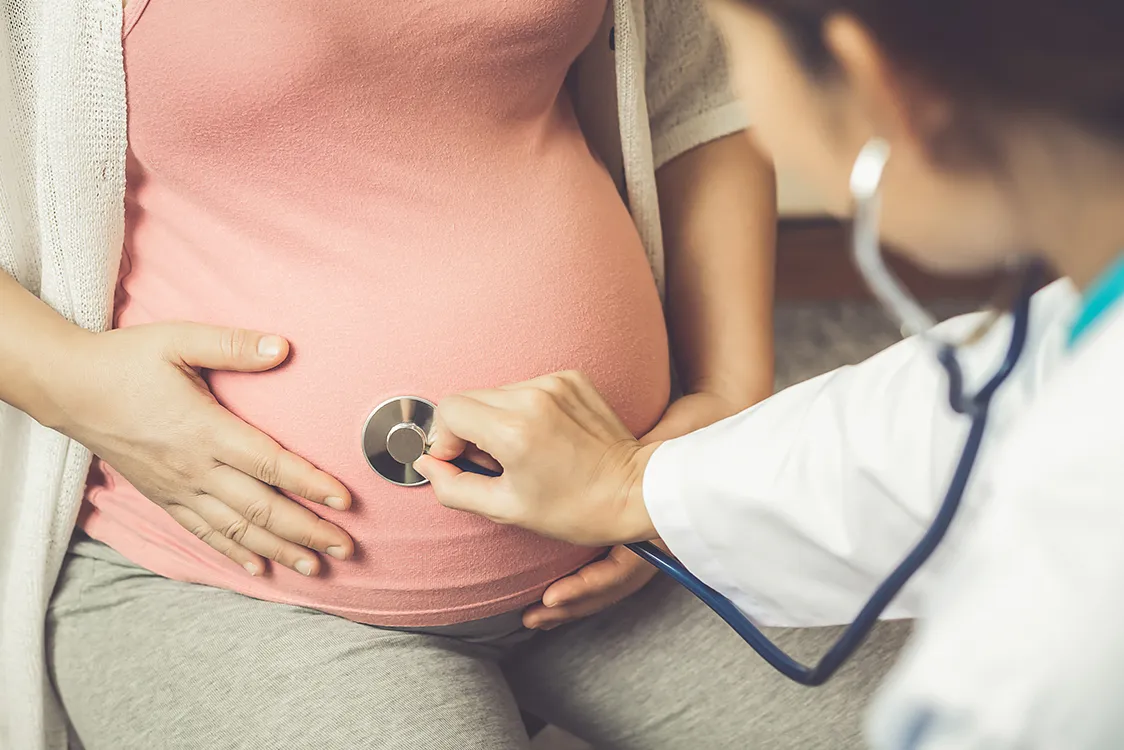Many pregnant women experience back pain, and a recent review of the literature suggests an age-old remedy may be able to help.
An analysis of 10 trials from around the world found that acupuncture significantly reduced lower back and pelvic pain. The results were released on November 21 in BMJ Open.
The researchers, who included Dr. Wei Dong from the Department of Orthopaedics at the Kunming Municipal Hospital of Traditional Chinese Medicine in China, found that acupuncture “significantly improved pain, functional status, and quality of life in women with [lower back/pelvic pain] during the pregnancy.”
In a journal news release, they claimed acupuncture had no discernible severe adverse effects on newborns.
The 10 trials took place between 2000 and 2020 in Brazil, Sweden, the United Kingdom, Spain, and the United States. The trials involved 1,040 healthy women in total. On average, they were between the 17th and the 30th week of pregnancy.
Each received treatment from skilled acupuncturists, physiotherapists, or midwives for lower back and pelvic pain. Seven of the ten trials discussed body acupuncture. The other three discussed acupuncture for the ear lobe. The results varied, but those from nine studies’ trials suggested that acupuncture significantly reduced pregnancy pain.
Acupuncture may help restore physical function, according to four studies, all of which found appreciable progress. Results from the five studies that looked at how acupuncture affected quality of life suggested that it did so significantly better.
When acupuncture was compared to other interventions or no interventions, there appeared to be a significant difference in overall results, according to a pooled data analysis from four studies.
But a separate analysis of two studies documenting the use of painkillers found no distinction between those who received acupuncture and those who received nothing.
Seven studies used “forbidden points,” or locations that are generally not advised to be visited while pregnant.
According to the researchers, the findings imply that acupuncture is secure. Acupuncture and other interventions did not differ significantly in four studies that reported on newborns’ health scores.
The authors noted that two studies reported preterm contractions, but the babies were healthy when they were born. The pregnant women experienced drowsiness, soreness, and bleeding at the needle site as side effects. The majority agreed to have acupuncture again.
Although the exact mechanism by which acupuncture might reduce pain is unclear, it is thought to involve endorphin release and increased blood flow to muscles and skin.
According to the researchers, the included studies were few in number and of varying quality. The designs, approaches, conclusions, and participant characteristics also varied across the studies. The authors noted that in two, more than 20% of participants dropped out.
They claimed that acupuncture deserves more attention because of its potential to reduce pain when it’s preferable to avoid drugs. According to the team, more extensive and carefully planned [randomized controlled trials] are still required to confirm these findings further.





